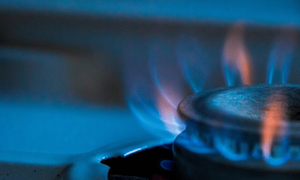Essential Winter Maintenance: Protecting Condensate Pipes from Freezing

As winter approaches, the Heating and Hot Water Industry Council (HHIC) is advising heating engineers and homeowners to prepare condensate pipes to prevent freezing and maintain boiler function in colder months.
Updated guidance from HHIC, released to support best practices, emphasises that proper insulation and installation of condensate pipes are essential to avoid potential system disruptions caused by frozen pipes.
The council highlights that external condensate pipes are particularly vulnerable to freezing if not properly insulated or sealed, which can lead to blockages that impact heating and hot water availability.
HHIC director Stewart Clements calls on engineers to ensure compliance with manufacturer guidelines and standards like British Standard BS 6798:2014, to help maintain system reliability and customer warranties. “Following manufacturer guidelines, alongside our condensate pipe installation guide, provides maximum protection against pipe freezing,” he said.
HHIC's guidance recommends connecting pipes to internal drainage where possible or applying specific insulation techniques for external pipes. Engineers are encouraged to inspect systems carefully, confirm adherence to updated regulations, and advise homeowners on any necessary upgrades that could boost efficiency and resilience during the winter.
Guidance detailed is:
- Where possible, connect condensate discharge pipes to an internal “gravity discharge point” such as a soil stack, or bathroom and kitchen waste pipes.
- For external pipes, use at least 13mm of UV-resistant, waterproof insulation, seal all joints and terminate the pipe at a 45-degree angle. External pipes should end below grid level but remain above the waterline to guard against wind chill.
- When internal gravity discharge points are not possible, a condensate pump should be used to help discharge condensate effectively.
Read more: Homeowners urged to prepare condensate pipes for winter cold
